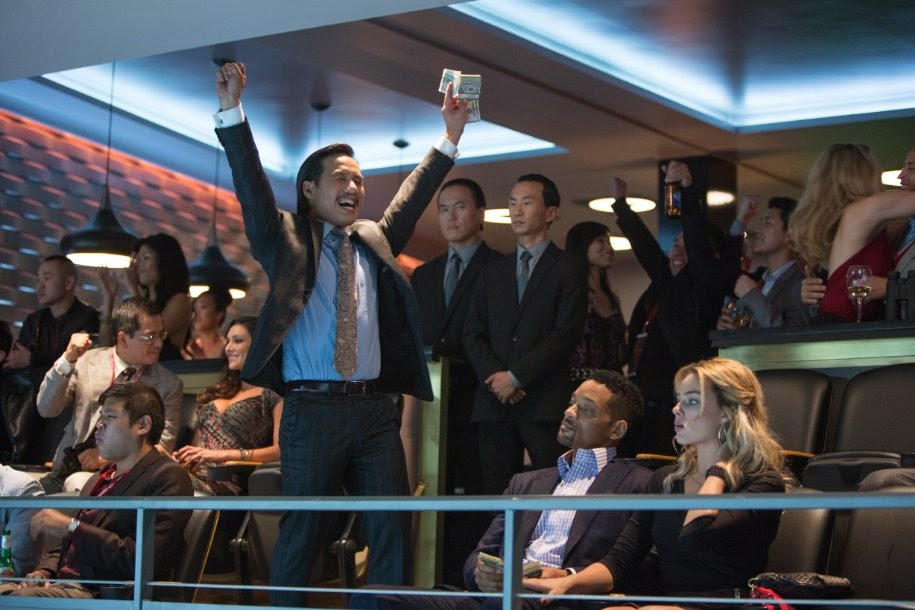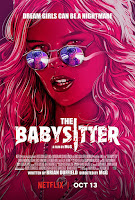Prisoners
Prisoners
(2013)
A Review by Grant Kanigan
Directed by: Denis Villeneuve
Written by: Aaron Guzikowski
Starring: Hugh Jackman, Jake Gyllenhaal, Terrence Howard,
Paul Dano, Maria Bello, Viola Davis, Melissa Leo
Rating: 14A
Release Date: September 20th, 2013
Release Date: September 20th, 2013
 |
| Jake Gyllenhaal & Hugh Jackman in Prisoners © 2013 - Warner Bros. Pictures |
While this is not a film for the squeamish or easily disturbed, Prisoners is required viewing for any film lover. The story centers around Keller Dover, (Hugh Jackman), and Franklin Birch, (Terrence Howard), whose daughters go missing while playing outside during a multi-family thanksgiving dinner. Almost immediately the suspect, Alex Jones, (Paul Dano), has been caught, and Detective Loki, (Jake Gyllenhaal) is on the case. What follows is a literal and figurative path down moral and ethical boundaries, into the labyrinth of the human soul. Prisoners doesn't flinch in the choice of subject matter it explores.
While it seems pretty likely we know who is and who isn't guilty at the outset of the film - this is not quite so. There are layers at play, and pawns to vanquish. Jake Gyllenhaal, as Detective Loki is a revelation. Even down to his subtle twitching, Gyllenhaal becomes his character; it was a crime he wasn't even nominated for best actor. While Jackman, as Dover, in his most intense role to date, (the unflinching ferocity we saw Jackman display at the beginning of Les Misérables is in full force here), is a character foil for Loki. Both know that a certain suspect is at least privy to the location of the missing girls, but each chooses a different path to get their information. Loki chooses the moral and legal high ground, Dover chooses brute force. The film soon becomes a race to see which method will actually find the girls, whether or not they're dead or alive.
Prisoners asks tough questions. Not complacent to merely treat the viewer as a witness to it's moral outrage, it asks viewers what they would do. If someone took your child, would you play nice? If you knew they were guilty would you imprison them? If you knew your daughters lives were at stake, would you kill their captor to find their location? As well, there is enough ambiguity to make the viewer squirm in anguish. While, like Dover, we're pretty sure we know who is guilty, nothing is certain. The inhumanity Dover dishes out could be all for naught; it's this desperation that forces all of the characters to act out in the film, but shows that nobody knows how their chips will fall until the cards are laid on the table.
It's a testament to the screenplay that the moral ambiguity plays out so well. Fresh off the hit Wahlberg vehicle Contraband, screenwriter Aaron Guzikowski is masterful in his writing. Like a slowly burning cigar, Prisoners lays on clue after clue, moral debate over debate until the tension is white hot. Even as the film concludes, there is still a moment of gut wrenching moral ambiguity. Guzikowski shows that nobody knows what will come until they find themselves standing on a moral precipice. Guzikowski's screenplay is one of the best in years, and I can't wait to see what he does next.
While a script that's whip-smart and philosophically potent, a director that squeezes exuberance and humanity out if his actors and an ensemble of some of the best A-List hollywood talent, that's probably enough to have a winning film. Yet, the best part of Prisoners is it's cinematography. Roger Deakins, cinematographer of The Shawshank Redemption, Kundun, O Brother, Where Art Thou, A Beautiful Mind, Doubt and Skyfall, among a plethora of other fantastic films, does his absolute best work. Viewing the warped psyche of a possible killer with a single ray of light shining on his eye, to a bloody drive to a hospital in the thick snow to a house filled with mazes, Deakins' work here raises the bar for anyone else making movies in cinema. It's a testament to his skill that the only Oscar nomination Prisoners received was for cinematography. Deakins is a cinematic genius.
All in all, it's difficult to make a perfect film, but many directors and creative types come close. Interstellar was near cinematic perfection, and it spanned centuries and galaxies. Here, however, Prisoners takes place in a singular small town, and the entire premise is based on a moral debate. Yet, it's just as fantastic as Interstellar. Every element, every shot, and every question that Prisoners raises is exemplary. Terrifying and brilliant, this is as close to cinematic perfection as we can get.
Grant's Rating: 5/5
Prisoners clip: "Tell Me What You Did"



Comments